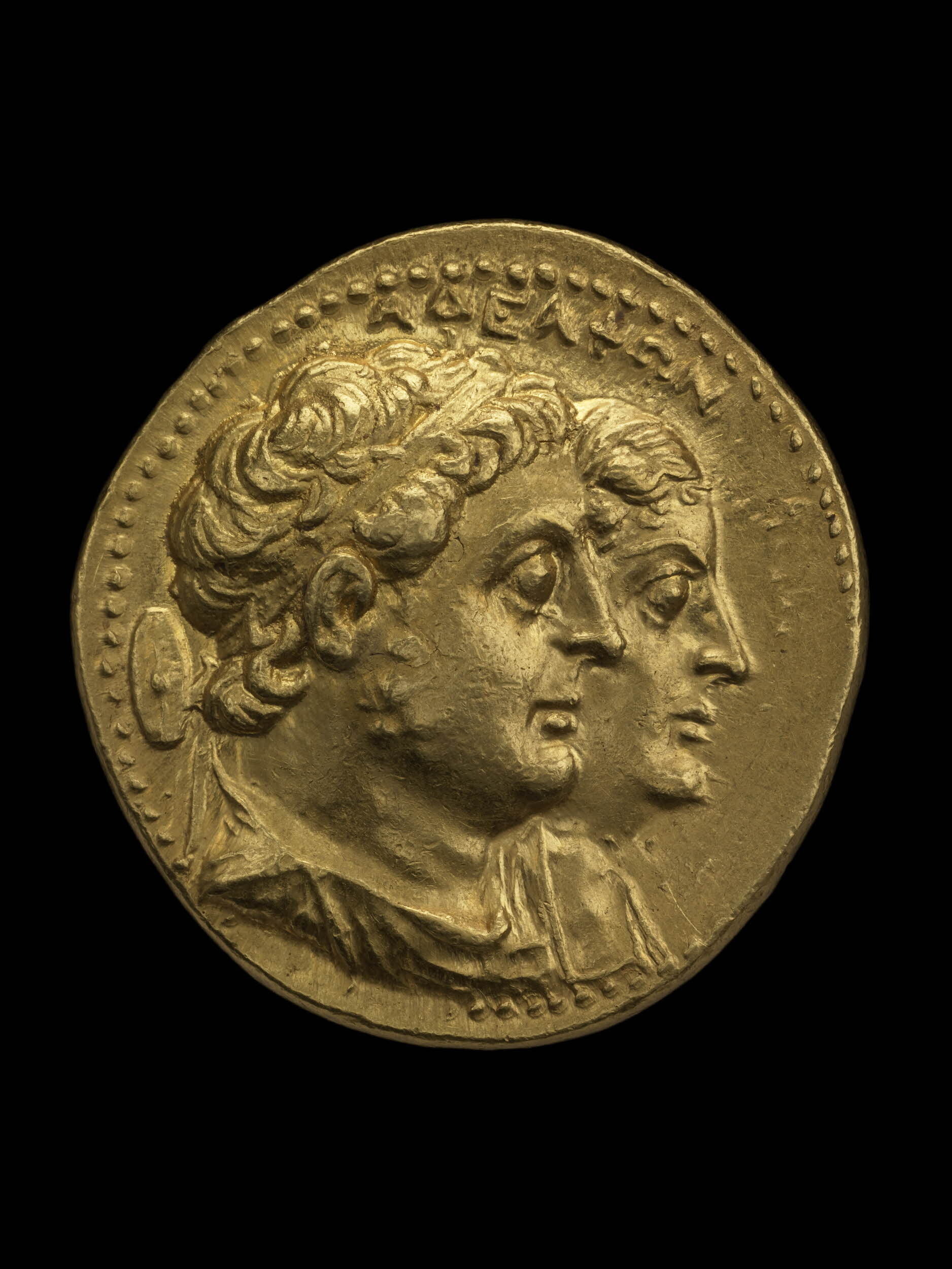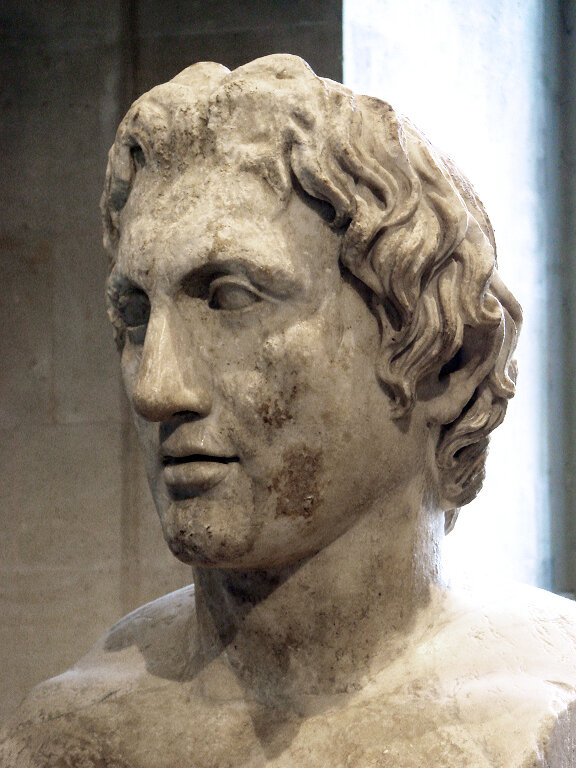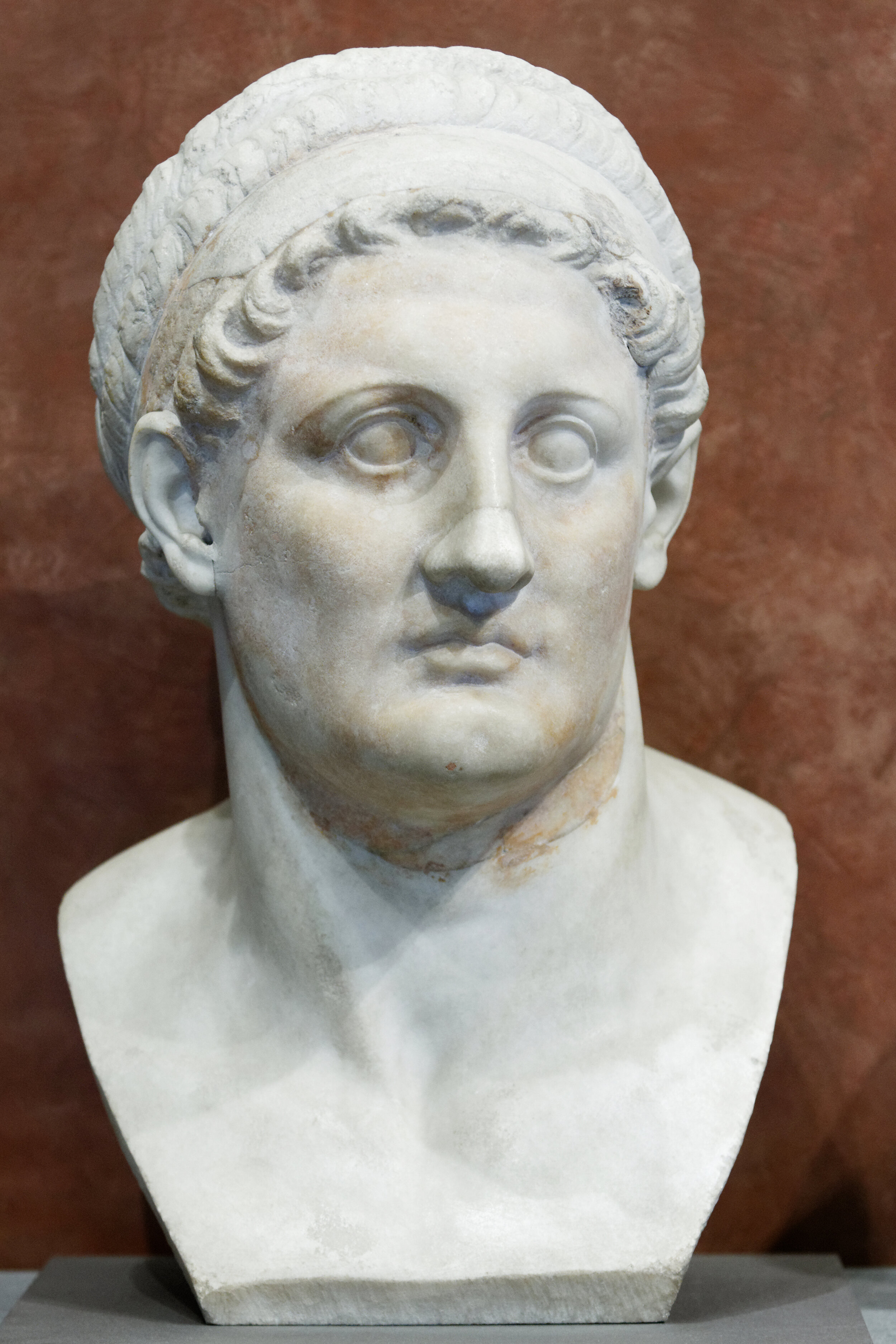Arsinoë II: Queenmaker of Ptolemaic Egypt
Cleopatra maneuvered her way through Egyptian, Greek, and Roman politics, defying the odds to keep the Ptolemaic dynasty – and Egypt’s independence – going. But what of all the Cleopatras who came before her?
In delving into Cleo’s life, I found a host of interesting women in the family that shaped her. But only one amongst them truly set the tone for the dynasty, creating a mold that had royal Ptolemaic women ruling not from behind their husbands, but beside them. That woman is Arsinoë II. Let’s dive into the wild and crazy ride that was her life.
RESEARCH SOURCES
Arsinoe of Egypt and Macedon: A Royal Life. Elizabeth D. Carney, Oxford University Press (part of the Women in Antiquity series). This was my main source for this episode, and I really couldn’t have written it without it.
Encyclopedia of Women in the Ancient World. Joyce E. Salisbury, ABC CLIO, 2001.
“Egypt's Lost Queens.” Ancient Egypt Documentary, Timeline, accessed via YouTube.
“Arsinoe II Philadelphus.” Branko Van Oppen, Ancient World Magazine, Feb. 2019.
dripping in gold, as is arsinoe’s way.
Arsinoe II and her brother-husband Ptolemy II, courtesy of the British Museum
TRANSCRIPT
Please keep in mind that I edit a bit as I record, so this won’t be exact. And please excuse any typos: I do my best, but you know how it is.
HOW TO MAKE A DYNASTY
Arsinoë, who historians call Arsinoë II to differentiate her from the ladies of the same name who come before and after, is born around 316. We don’t know much about her early life; in fact, she barely shows up until she marries someone. Isn’t it always the way? As Elizabeth Carney so deftly puts it in her book about our subject, which is where most of this episode’s research came from: “looking at Arsinoë’s life is a bit like trying to meet someone at a big party, but somehow always missing them…in a sense, Arsinoë is always in the other room.” But we do know something about her parents, who irrevocably shape the person she’ll become.
Her father is Ptolemy I Soter – yes, the original Ptolemy we talked about in our first Cleopatra episode, who founds the dynasty that bears his name. She is one of Ptolemaic Egypt’s very first “First Daughters,” but from the beginning, her place in its history was far from assured.
To understand Arsinoë’s story, we have to ground ourselves in time. Remember where we left off in our episode about Olympias, mother of Alexander the Great? I’ll remind you, because that’s exactly where our story opens. Pappa Ptolemy grew up in and around Alexander the Great’s court in Macedonia as one of his Royal Bros, as we discussed when talking about Cleo. But when he dies in 323, he doesn’t leave a clear line of succession. When asked on his deathbed who he’d like to rule, he just says, “the best.” I almost think Olympias’s son looked forward to the drama of it all. Inevitably, with the throne vacant on his massive empire, the scene starts to look very much like the opening minutes of a Coronavirus-era fight over that last pack of toilet paper. In terms of who should rule Macedonia, there are two teams. One is Team Philip Arhideaus – that’s Alexander’s dim-witted half-brother – and Team Alexander’s Unborn Baby, who is still inside his wife Roxana’s womb. The generals on each side clash, but one – Perdiccas – emerges victorious. He puts Philip Arhideaus on the throne, makes himself its top commander, then assists as the Royal Bros, more formally known to history as the Successors, carve up the rest of the empire and pass it out like pieces of sweet raspberry pie. They will spend the next several decades trying to steal those pie pieces back from each other. The problem is that in the beginning they’re technically ruling as satraps – kind of like governors – not kings in their own right.
That’s one of the reasons Ptolemy steals Alexander’s body and brings it back to Alexandria. None of Alexander’s Bros can claim their right to rule their new lands as blood descendants of Alex; they have to claim it on the back of being big, impressive war heroes. Ptolemy is a self-made man. But with Alex’s body, he can more clearly stake his claim for the dynasty he’s about to create. But his bold moves also help kick off the first War of the Diocchi, otherwise known as the Wars of the Successors. These go on for decades: friends betray each other, kings die and rise, and it’s all just a super confusing, bloody cluster, but they are worth mentioning here for two reasons. First, because they continue to rage throughout Arsinoë’s lifetime and affect her in a massive way. Two, because in these troubled times, Alex’s royal bros find they have two tried-and-true ways of sorting out their many disagreements: one is to wage war against each other, which is messy and expensive, and the other is to marry each other’s daughters. These royal women may not have a lot of power, but they are extensions of their family – and in some ways, that makes them quite powerful indeed.
For all his faults, Arsinoë’s dad Ptolemy Soter is quite serious about making Egypt great again. When not off warring, he is setting the budding city of Alexandria up for greatness, moving Egypt’s capital from down south, where it’s been for a very, VERY long time. takes what Alexander started and builds the first walls and sanctuaries. He may even be the one who starts constructing the Pharos, or lighthouse, which will become one of the wonders of the ancient world. He splashes out a lot of money to turn his family into major patrons of art and culture, wanting nothing less than to turn Alexandria into the Hellenic cultural capital of the world.
LONG LIVE THE PTOLEMIES
At first glance, the Ptolemies seem overwhelmingly like the Egyptian pharaonic dynasties of old. They associate themselves with gods and goddesses, live in grand palaces – they even marry their sisters. Except they don’t, actually—at least, not yet. Look closer and it’s clear to see that the Ptolemies fit the mold of Macedonian Greece. They speak Greek, hold up Greece’s art, education, and traditions. AND just like in Olympias’s day, their kings take multiple wives.
When we think of ancient Egypt, we think of pharaonic families with royal harems. That isn’t what’s happening here. Instead, Ptolemy follows the Macedonian tradition of taking several wives and having children with all of them. Lovers, too. There’s a Greek woman named Thais, a hetaira who supposedly traveled with Alexander. It’s rumored that she was the one who convinced him, during a night of drunken debauchery, to light the Persian city of Persepolis on fire. Oh my! She has several of Ptolemy’s children. Then there’s Artacama. Ptolemy picks her up at the Susa weddings: remember those? After Alex took over Susa in Persia in 324, he lined up all his best bros across from some local ladies, like they were about to do some line dancing, and was like, “you get a hot wife, and you get a hot wife!” A mass forced wedding! That’s fine. Ptolemy Soter might even take an Egyptian wife from the last ruling dynasty, but we aren’t 100% sure about that. Suffice it to say: he’s drowning in lady companions.
But if there’s a Queen Bee in Ptolemy’s court, it’s got to be Eurydice. She’s the daughter of Antipater, the big dog over in Macedonia, who all the Royal Bros want to get in political bed with, and the sister of Cassander, that Royal Bro who killed Olympias. Rude. She bears Ptolemy at least four children, two of which are sons. But she isn’t Arsinoë’s mother: that honor falls to a fine lady named Berenice. When Eurydice comes over to Alexandria to marry Ptolemy, Berenice comes with her as one of her ladies in waiting and ends up in a kind of Jane Seymour/Anne Boleyn/Henry VIII situation: she arrives, looking fly as she flutters about her lady queen, catches the randy Ptolemy’s eye, and works that attraction to her advantage. There’s no real political edge for Ptolemy in marrying her, so we have to imagine they marry for love. Out of that love comes several children. Ptolemy be flush with potential heirs.
This creates the same rivalries we saw in Olympias’s court. Because there is no Chief Wife, no defined pecking order, and no clear line of succession, wives are pitted against each other from Day 1, their sons and daughters becoming chess pieces in the game of who has power. For most of Arsinoë’s childhood, her half-brothers – the sons of Eurydice – are clearly in favor with her father. So she surely grows up knowing that dad’s other family matters to him more than she does, always standing in their shadow. It’s hard to know how she feels about this, but I can’t imagine it leaves her warm and tingly. We don’t know if Berenice’s kids and Eurydice’s grow up hating each other, like an extremely poisonous Brady Bunch, but we can assume they see each other as rivals. Who will win their father’s ultimate favor and end up on the throne?
We know nothing about her childhood. Really: nothing. We do know that Arsinoë’s brothers get fancy Greek tutors, and given the local attitude about women and learning, and her dad’s clear fondness for reading, it’s likely she benefits from some of that scholarly learning too. Like our Cleopatra, it’s likely she grows up in luxury, but also anxiety. Her position in his court is always tenuous, and she knows her fate lies in hands other than her own.
For much of her childhood, it looks like a guy named Ptolemy Ceraunus, Ptolemy’s son with Eurydice, is the next in line for the throne. But somewhere along the way, Berenice’s star starts rising. She increasingly gets pride of place over Eurydice, and that means Arsinoë and her brothers get it too. Her family’s power seems assured. So what now? It’s wedding time.
MARRYING LYSIMACHUS
Remember how we said that marrying each other’s daughters was a powerful way of tying these often-warring courts together? So Ptolemy Soter takes one look at his daughter and says, “Shall we gift you to one of my buddies, darling?” And so, around the turn of the third century, Arsinoë marries her prince. Just kidding! She marries Lysimachus, the king of Thrace, which is split between modern-day Bulgaria, Greece, and Turkey. She’s probably about sixteen, and he’s…sixty. An age gap is common in this time period, but this one’s big enough to fit a pyramid through. We don’t know much about Lysimachus as a man. He has a rep for being brave, or maybe reckless, and strong, or maybe ruthless. So, probably about on par with the rest of Alex’s bros. During his time with Alexander, he fought and was wounded, was given a wife at Susa, and apparently participated with gusto in several lion hunts.
When she arrives at Lysimachia, the capital of Thrace, to marry her prince, how does she feel? Excited? Nervous? Grossed out to be marrying someone old enough to be her grandpa? We have no idea, but there’s no denying that this is a powerful position to be marrying into. There will be other wives to contend with, but this is a powerful country, and one where, as one of the leading lights at court, she can potentially influence a lot.
It’s worth nothing here that, back in 306 when all of Alex’s bros shucked off that satrap life and took on royal titles, they also took up a new word for royal women: basilissa. For the first time, they also gave their ladies shiny diadems to show everyone who looked their royal place. Rock those jewels, girl! While this title doesn’t mean they can actually rule in their own right, it cements their importance in these royal families as symbols – icons. Influencers. Their lives and images are public. And so they are pawns, but also players.
We know extremely little about what life is like at Lysimachia for Arsinoë, besides the fact that she bears her hubbie three sons: Ptolemy in 298, Lysimachus in 296, and Philip around 293. He had other, older sons with other wives, so she probably couldn’t expect for them to inherit, but hey: you never know. She probably spends these years keeping her nose clean, traveling with the Thracian court, raising her sons and fighting for their interests. We do know that she enjoyed a good splash of prestige and attention. Strabo and others tell us that her hubby re-founds the city of Ephesus and names it Arsinoëa after his lovely lady. There are some coins that we THINK have her face on them. A village put up an inscription praising their basilissa Arsinoë, speaking to how publicly important her role is. She’s a queen, a patron, and maybe even a priestess.
Does she have any real power, or is her name being used to show the might of Egypt’s support in Thrace and the strength of Lysimachus’s family? Hard to say. On this time in her life, our gal is silent.
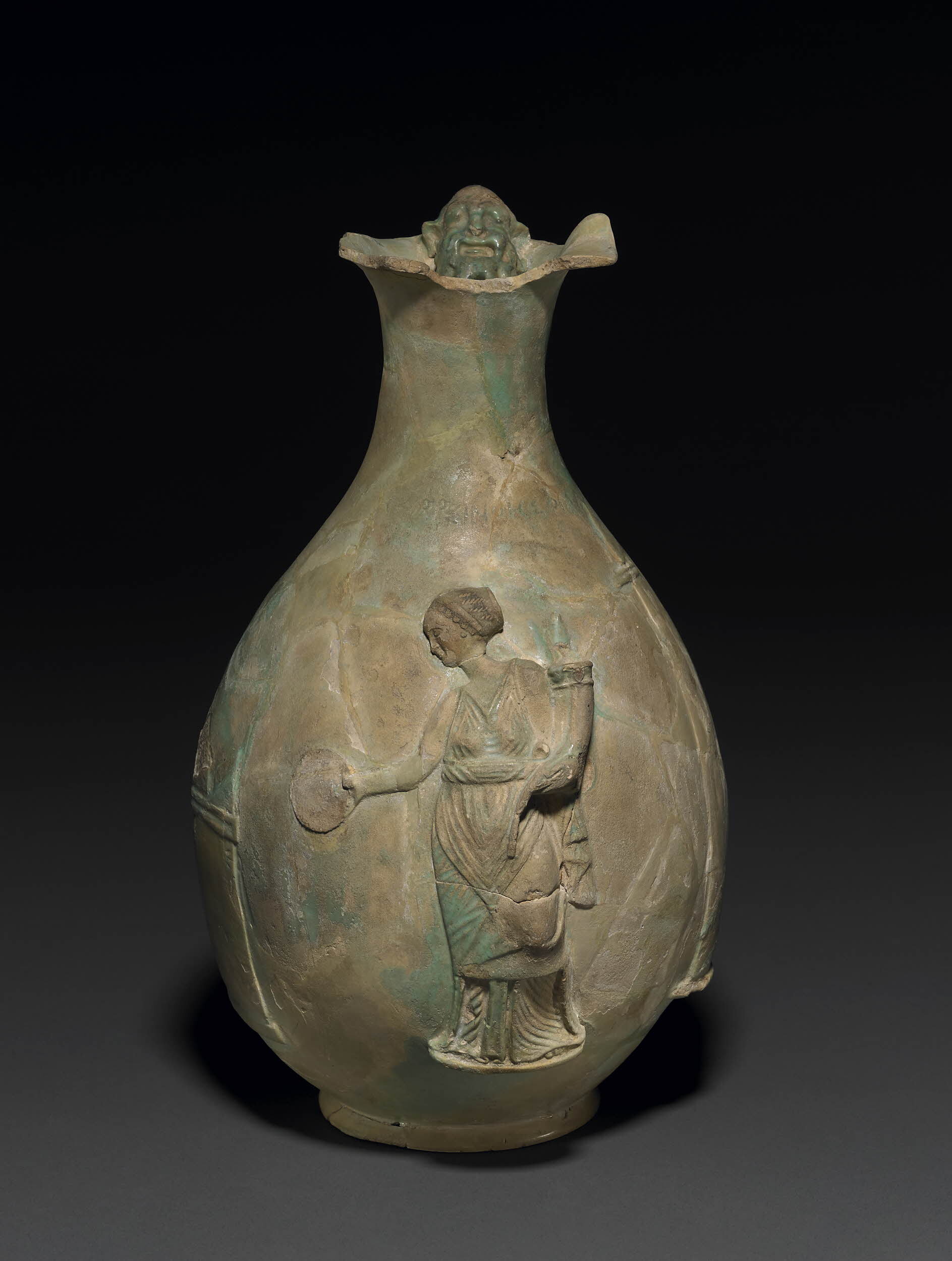
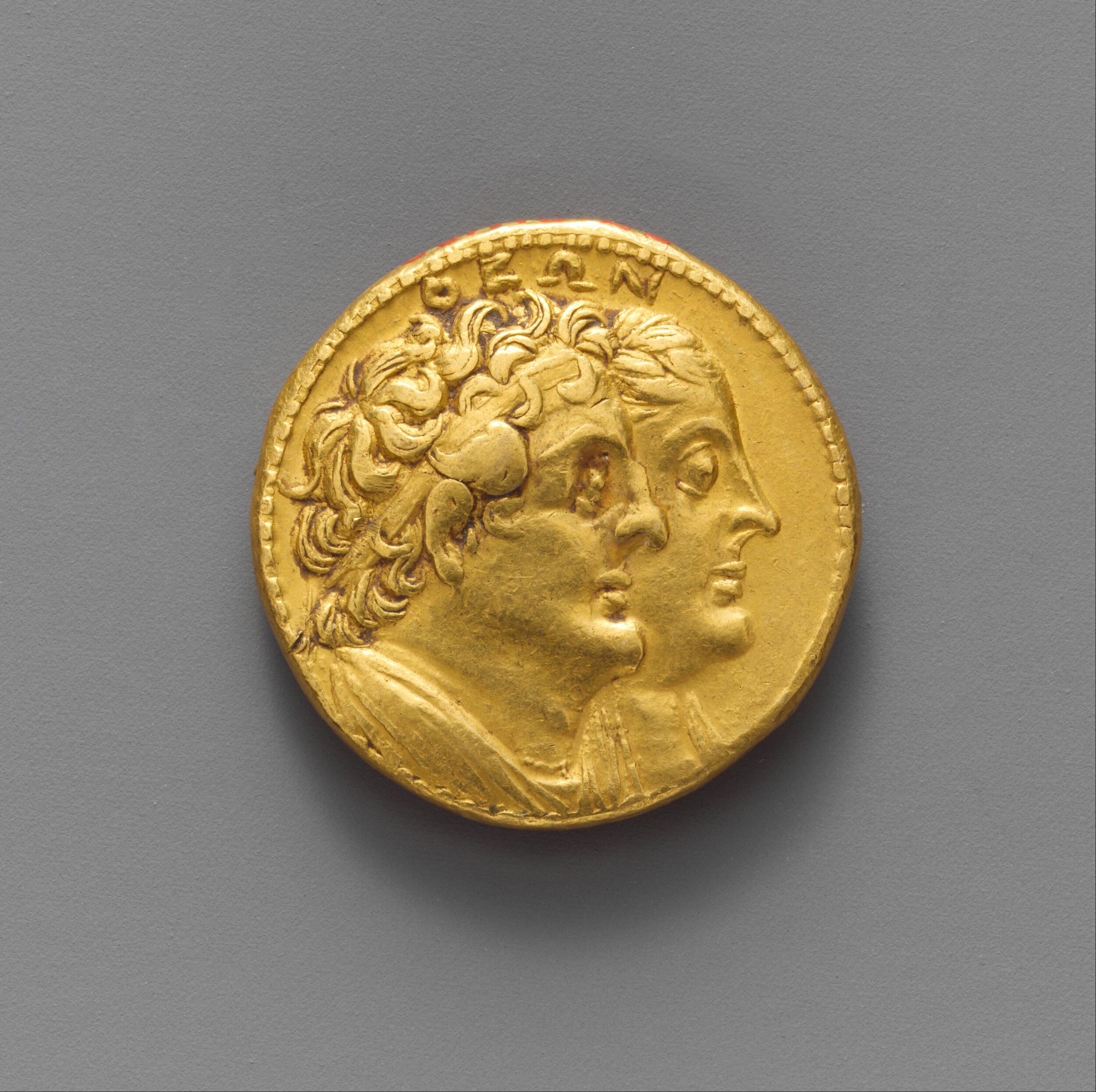
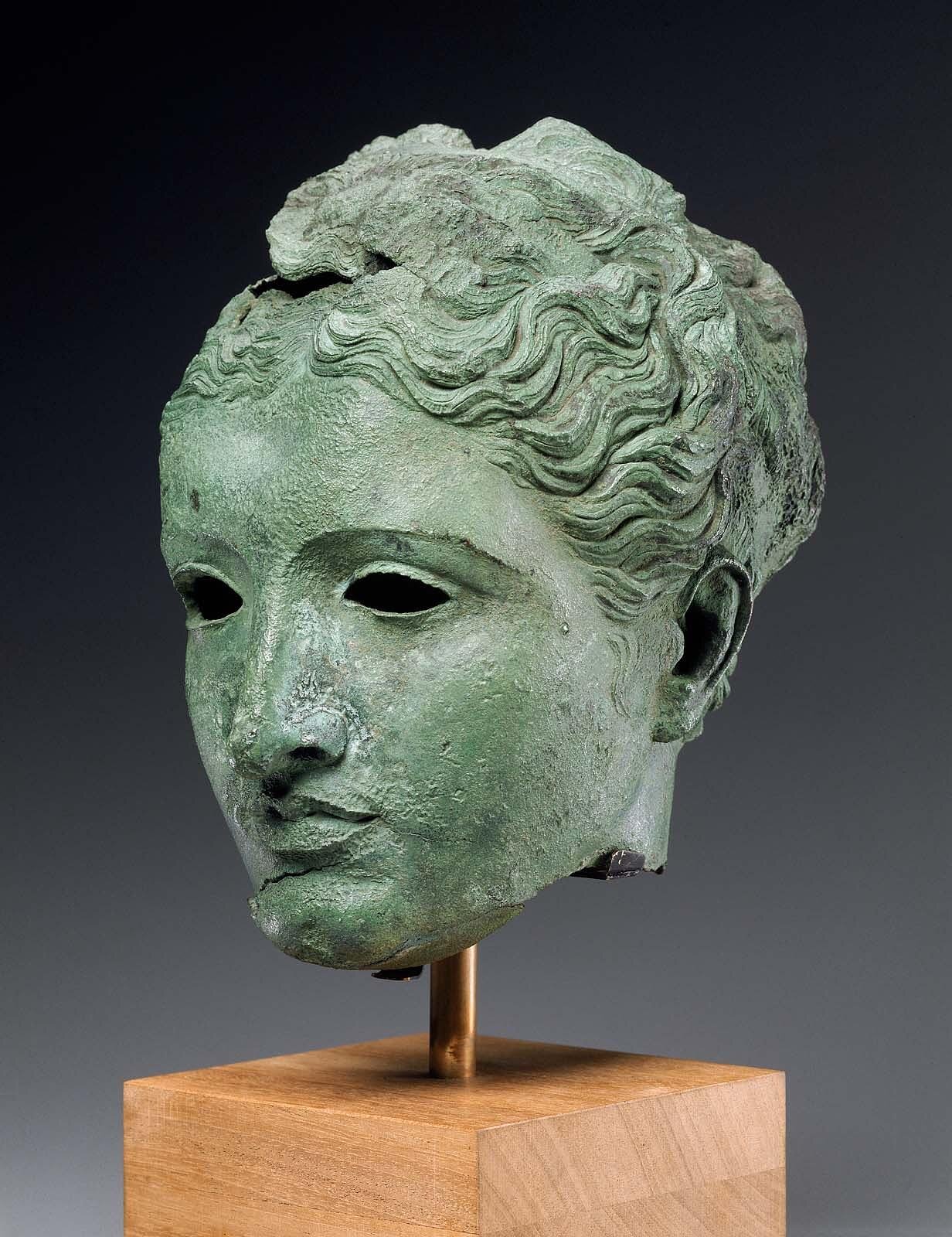
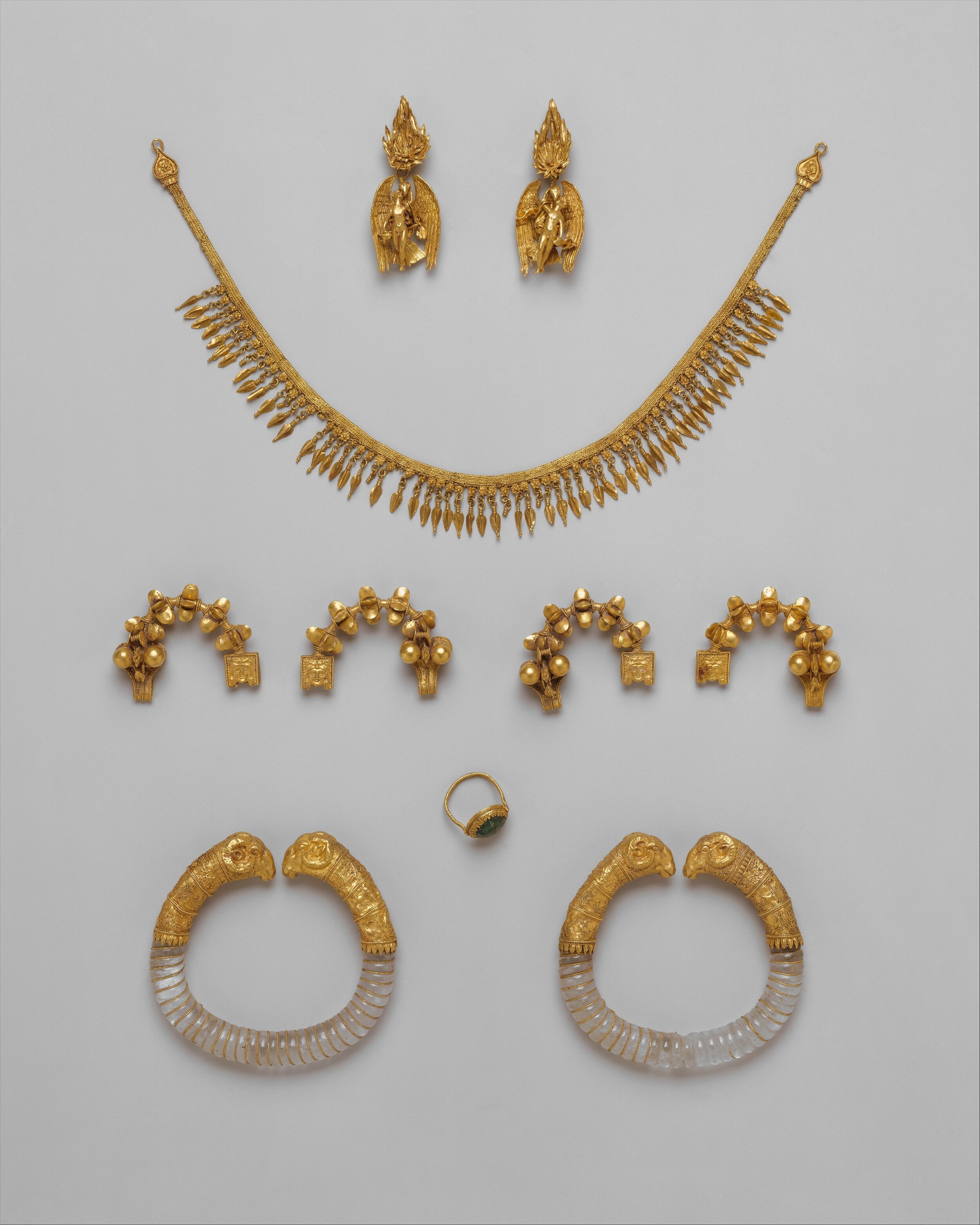
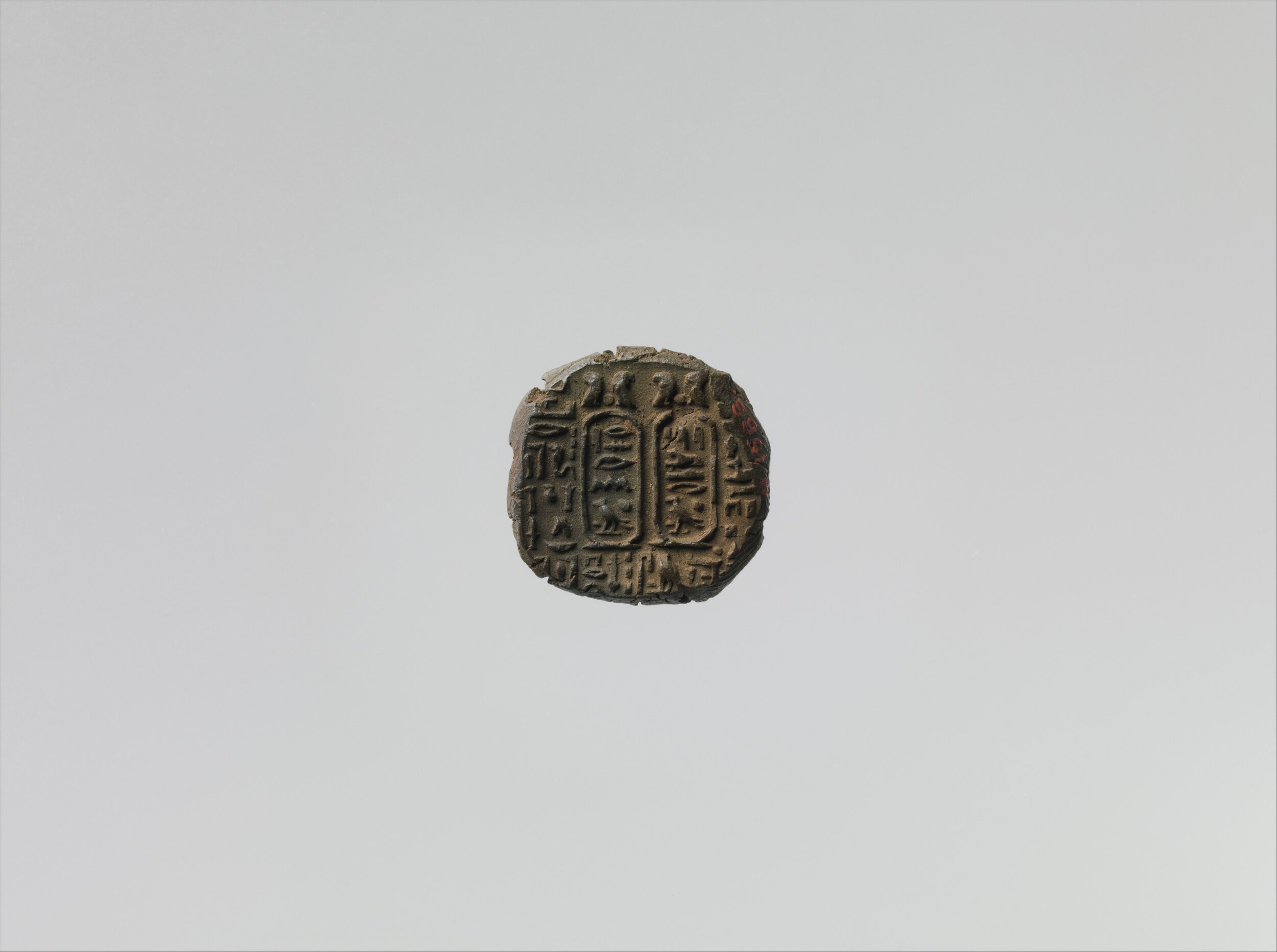
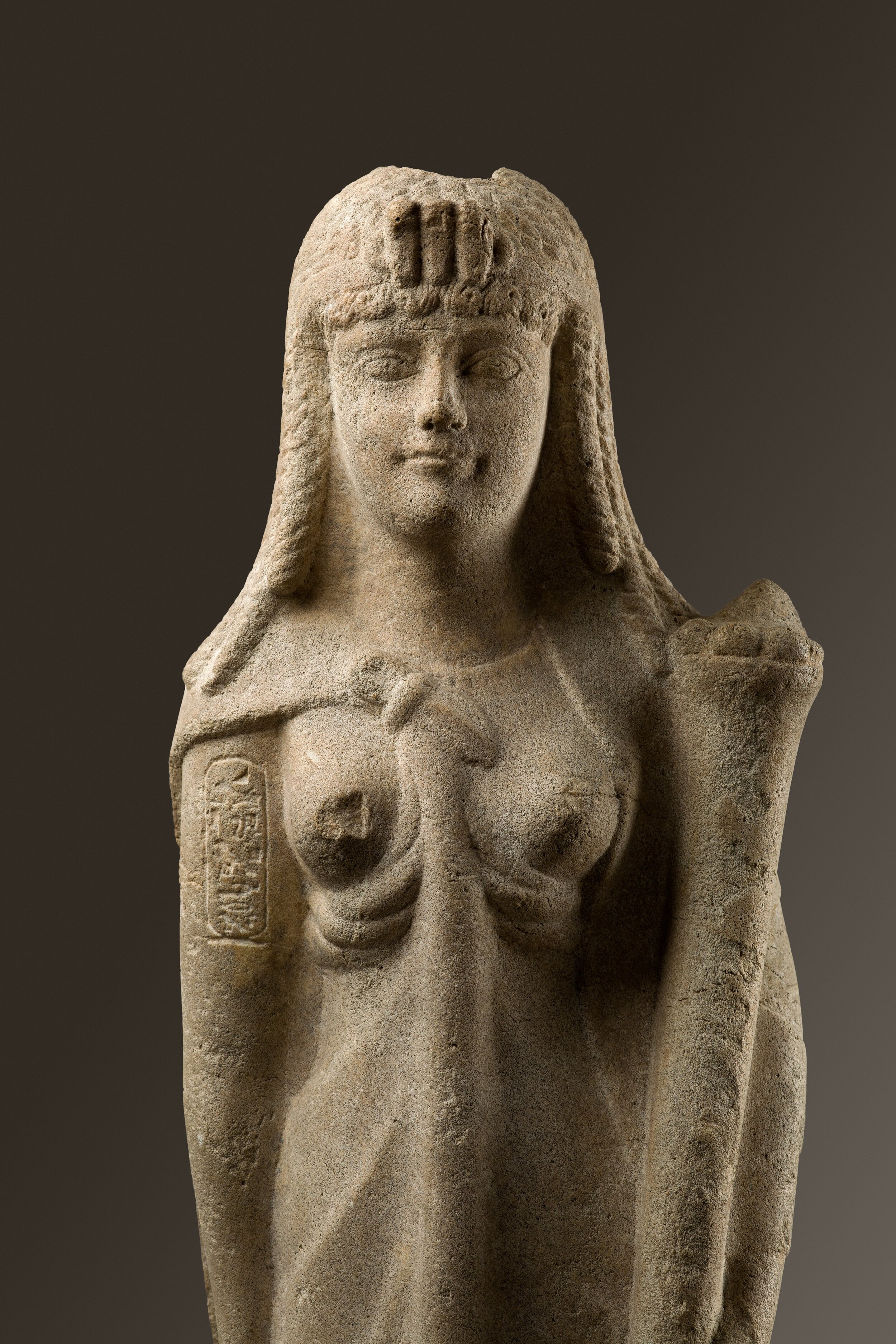
But there’s blood in the water. Lysimachus and Ptolemy Soter are arranging another marriage, this time between Lysimachus’ son with another woman, and his chosen heir, Agathocles, and Lysandra, Ptolemy’s daughter with Eurydice…so, one of the half siblings Arsinoë perhaps grew up hating. Now these two women are competing once again.
Meanwhile, another one of Eurydice’s sons is getting ready to wreak havoc. In 285, Pappa Ptolemy finally chooses a successor and co-king: and it’s Arsinoë’s brother, Ptolemy, NOT her half-brother Ptolemy Ceraunus. This has got to cause some serious uproar in Ptolemy’s court, particularly to Ceraunus. He grew up expecting to take up the position: I mean, his mom was the favorite wife, he was the fave son: no brainer! But to his horror, he found himself falling from his pedestal. Like a jilted lover, Ceraunus marches out of Alexandria. Perhaps he’s angry about being shunned by his dad, or perhaps dad kicks him out. Either way, no doubt he leaves with a grudge and a major chip on his shoulder. And someone is going to have to pay.
And like a shark in the water, he appears at Lysimachus’s court. We don’t know why, but his motives can’t be good. Meanwhile, all the royal Now Old Bros are choosing sons to be their co-rulers and successors, but not Lysimachus. He’s in no rush, and that’s making everybody nervous. Especially Arsinoë, whose oldest son is 15 and coming very close to adulthood. What if her aging husband bites it and that oldest son, Agathocles, gets the power? What will happen to her and her boys? With several sons hungry for power and nothing to do, we’ve got a potential succession battle on our hands.
And that’s when things get really messy.
***
This episode is sponsored by Hank Green. His first book, An Absolutely Remarkable Thing, was released in 2018, the story of a young woman thrown into, and then growing her fame as the world suddenly has to deal with massive changes in the form of contagious dreams and mysterious ten foot tall robots that have appeared in every major city. The Associated Press said it was a thrilling journey that takes a hard look at the power of fame and our willingness to separate a person from the brand. Book Reported said it was “perhaps as honest a look as we will ever get into the phenomenon of cyberfame." And the San Francisco Chronicle said "Sparkling with mystery, humor and the uncanny, this is a fun read. But beneath its effervescent tone, more complex themes are at play." Well now that novel is out in paperback, or at your library, and also for cheap in audio form. And the sequel and conclusion of the story, A Beautifully Foolish Endeavor, is out to sparkling reviews. Hank wanted his publisher to sponsor a ton of small podcasts, but they said that was too weird. So, instead, Hank took 5% of his advance from the book and did it himself. Library Journal's starred review said: “Throughout this adventurous, witty, and compelling novel, Green delivers sharp social commentary on the power of social media and both the benefits and horrendous consequences that follow when we give too much of ourselves to technology.” The book is out July 7th in physical, audio, and e-book wherever books are sold, or you can just go to hankgreen.com and that will get you where you need to go!
***
CLOAK AND DAGGER
Mysteriously, Agathocles dies. Some sources claim that Arsinoë is behind it: she convinces her husband to have him poisoned. Some say she even does it herself, because we do LOVE accusing women of tipping toxins into men’s dinners. Some sources take it a step further and say that Arsinoë tries to seduce Agathocles, then has him killed because he rejects her. Yeha, mk… But Strabo says that it’s Lysimachus that has his son killed because he’s plotting against his father. Does he ask Arsinoë and her oldest son to do it, then pretend not to notice? Or does he do the deed himself? And why, really? We don’t know, but it lets everyone know that the court in Thrace isn’t exactly cohesive. And a fractured court is an easy one to break.
First, the freshly widowed Lysandra flees with her kids to Seleucus, another royal bro. His empire is sandwiched between Ptolemy’s and Lysimachus’s, and it’s HUGE: we’re talking Babylonia and most of the East. Lysandra isn’t the only one who jumped off of Team Lysimachus after the death of his son; apparently Agathocles had plenty of people in his corner. So when she begs him to go to war with Lysimachus, he’s like, “yeah, girl. I got you.” He invades, taking some of Lysimachus’s territory before he can get his troops together. At last they meet at Corupedium in 281: it’s there that Arsinoë’s husband dies. When Arsinoë gets the news, she’s in Ephesus, aka Arsinoëa. We can only imagine her horror at the sudden change in her fortunes. The city erupts in chaos, with pro-Seleucid forces tearing down walls and busting storefronts. One story has it that in order to escape, she swapped clothes with one of her maids and put her in a royal litter, sending her off as Arsinoë, bedraggled, ran through the streets. Her maid is stabbed to death, and Arsinoë gets away. Brutal, but efficient.
The greedy Seleucus claims victory over Lysimachus’s lands. Months later, he crosses the Hellespont to claim them, and guess who’s right there, riding alongside him? Ptolemy Ceraunus, the snakiest of snakes. Things take a sudden turn when they get to Thrace, where Ceraunus stabs Seleucus in the back…quite literally. This is the moment where he picks up the name Ceraunus, which means “thunderbolt.” Can't you just picture him dropping that knife with a resounding “BOOM!”? He sees an opportunity to be king of Thrace, and he takes it, but it probably isn’t a crime of the moment. Given how quickly he rounds up a bunch of guards, grabs a horse, slaps on a diadeim and wins over Seleucus’s troops suggests planning and a lot of secret support. He managed to make peace with Seleucus’s sons AND Arsinoë’s brother Ptolemy II, somehow, then turns to the big internal threat—Lysimachus’s remaining sons and Arsinoë.
We don’t know exactly what Arsinoë’s been doing since she ran away in rags, but we have good reason to believe that she and her sons have been commanding troops and fortifying cities. She clearly controls some of Macedonia, and is fighting to keep it so that her sons can someday rule. She still has some friends, lands, and money, But their position is, at best, shaky. She’s currently holed up in the city of Cassandria, probably trying to figure out what next.
What’s Ceraunus going to do? Kill her and her sons? No, no, he decides: he’s taking the romantic route instead. So he saunters over to where Arsinoë is staying, in the city of Cassandria, which she has surrounded either by an army or some mercenaries she’s hired to her service, and is like, “hey, sugar. I think that maybe we got off on the wrong foot. Why don’t we put the past behind us and get married?”
And get this: eventually she DOES it. Whaaaat?! Let’s think this through. Obviously Ceraunus has plenty to gain: by marrying her, he gets Egypt’s support, and he links himself to Lysimachus’s legacy, legitimizing his rule. Finally, a kingdom of his very own! No matter that his wife would be his half-sister. That’s fine. But Arsinoë? In this time period, it’s common for widowed women to go back to their birth family. Egypt’s right there, girl: get your ass back home! But she doesn’t want to do that, apparently. Because she wants to be queen again, and more to the point, she wants her son to have their due. So as part of their negotiations, she makes Ceraunus promise that he won’t take any other wives, and that he won’t have children with anyone, and that her sons with Lysimachus will be next in line for the kingship. And he’s like, “sure, baby! I’ll even swear it in front of the gods and a witness of your choosing! Anything for you!” How does she know he doesn’t have his fingers crossed behind his back as he whispers these sweet nothings? She can’t know that; this is a calculated, dangerous risk not unlike the one Olympias took with she rode on back into Macedonia when asked to come and look after Alexander’s infant son. It could have been a trap, but she deemed the risk worth it. Taking this risk means Arsinoë doesn’t have to leave her rightful, hard-earned place. She refuses. Besides, she can manage him…can’t she?
At their wedding in 280 or 281, Ceraunus makes a big fuss of Arsinoë. He publicly puts a diadem on her head and hails her “regina”, or queen. Ancient writer Justin tells us that she’s joyful because of it. She throws her new husband a festival to celebrate their nuptials, sending her two youngest sons to greet him at the edge of the city of Cassandria. We think that her oldest son, Ptolemy, has left, perhaps because he’s pissed that his mom has married the Creepy Thunderbolt King. She does this probably because she’s trying to force Ceraunus’s hand, ensuring he publicly proclaims her sons as his heirs. And it’s all going swimmingly: until he pulls them into his tent and orders them killed. Justin, our only source for this, tells us the boys get away, screaming back to their mother, who begs to be killed in their place. But it’s no use: her sons are ripped from her arms and killed in front of her. She isn’t even allowed to bury them.
To add insult to injury, Ceraunus puts his mom Eurydice in charge of Cassandria. Luckily he’ll soon get stabbed by a bunch of people who dislike him. Bye, Ceraunus!
Arsinoë leaves her home and her dead sons behind her, and she’s probably heartbroken. She’s been tricked and betrayed by her half-brother and her own ambitions. She gambled, and she lost it all. But this injured phoenix won’t stay in her ashes forever. She’ll land in Samothrace, where we think she reunites with her oldest son Ptolemy. It’s here that she will build the largest round building in the Greek world, as a thank you for harboring her in her time of need. Instead of going right back to Egypt, we think, she spends the next few years trying to help her son win back his birthright. Though, frankly, this part’s all really hazy. Eventually, though, Arsinoë has no choice but to go home again, to seek refuge with her brother Ptolemy II. Anyone who’s ever moved back in with their parents after making it out on their own will probably understand her feelings. She’s already lived a big life as a queen, and now she’s supposed to settle back and focus on her needlepoint? No thank you. She thinks she’ll stage one of the ancient world’s greatest comebacks.
Arsinoe and her double cornucopia. living so large!
from Wikicommons.
THE QUEEN IS DEAD, LOVE LIVE THE QUEEN
The dates here are all a bit blurry, but here’s a rundown of what’s happening: Arsinoë arrives in Alexandria. Her brother, now sole king of Egypt as Ptolemy II, exiles his wife, also named Arsinoë; then he marries his full-blood sister, and she becomes his co-ruler. Wait…what?
You have to remember that, at this point, a full-blood royal marriage is considered bizarre in the extreme. Sure, the Egyptians probably don’t think much of it; pharaohs did it for centuries, emulating the great brother-sister gods Isis and Osiris. But the Greeks? They would think this is mega scandalous and not at all okay. So why do it? The gossips like to say that Ptolemy is desperately in love with his eight years older sister, and perhaps that she manipulates that love for her gain. But if the Ptolemies are anything, it’s calculating. This has to be a well thought out move. Like the pharaohs of old, they know that sometimes it’s better to turn your power inward and consolidate it rather than marry into other dynasties. I mean, Arsinoë already did that once, and look how that turned out. No: better and safer to close the gates and stick together, to align themselves with the Egyptian gods the people like so well. They spin it as a kind of ‘family values’ campaign, renaming themselves Philadelphus, or “Sibling Loving,” and emphasizing their duality as much as possible. It’s a controversial move, no doubt about it, and we can’t be sure how big a hand Arsinoë plays in making it happen. But there’s no doubt it’s to her massive benefit, letting her blaze a trail into leadership no woman has seen in Egypt for centuries. It sets the scene for Arsinoë to take a prominent – even unprecedented – step into the political sphere.
How much power does she have, and how does she use it? Frustratingly, we can only really look to art and inscriptions to know for sure. We don’t know how much she appeared in public and presided over public affairs, but we know that she’s very popular with the people. She’s also more involved with foreign policy and military action than any Ptolemy woman before her. For example, she travels with her brother-husband to Heroonpolis to inspect some military defenses. We also have a decree from Greece around 268, during a war that pitted several of the Greek city-states allied with Ptolemy II against each other. Though Arsinoë had died by then, it clearly says: “King Ptolemy, following the policies of his ancestors and sister, demonstrates his concern for the common freedom of the Greeks.” The fact that they mention her specifically when they talk about policy shows what a prominent role she, or at the very least her image, has to play. During that war, several ports are also named in Arsinoë’s honor. Even more intriguingly, she appears in a poem by Posidippus in which a young woman writes of a dream she has about Arsinoë, describing “the sharp spear in your hand, the hollow shield on your arm.” None of which means that she takes an active role in actual warfare, but this image of her is there in the public consciousness, suggesting they see her as a person of power.
Together, she and Ptolemy influenced and controlled the economy. They created royal monopolies, making sure finance came right to the royal house. In what was once a barter economy, she helps introduce coins. All of these things help turn Egypt, and especially Alexandria, into a rich economic powerhouse.
And Arsinoë is nothing if not an innovator. Remember that Arsinoë and her brother pioneer not only the whole sibling marriage thing, but the idea of the Ptolemies as living demi-gods: links to the divine that make them different than their subjects, underscoring their right to rule. An official cult is created for the brother-sister duo called Theoi Adelphoi (“Sibling Gods).” At Philae, at the temple of Isis, she has herself installed as the resident goddess. In fact, every temple ends up with symbols of Arsinoë in them, alongside the local god or goddess. Cults to Arsinoë crop up both in Greece and Egypt, where they pray for and to her with dedicated priests and rituals. These cults turn her into a living goddess, and in the ancient world that grants a whole lot of cache, and it survives long after she passes: until the first century BCE. Arsinoë paves the way for all the Ptolemaic women after her to essentially be born deified. Without her, Cleopatra wouldn’t have grown up feeling quite so divine.
Arsinoë uses both her money and image to influence foreign policy, but she’s also very good at using it to build up the family’s status at home. She gives money to religious projects, paying for shrines, patronizing various religious cults, and sponsoring elaborate festivals that let the common folk into the royal world. This makes the Ptolemies more beloved: nothing warms people’s hearts like giving them places to pray and to drink with abandon. Cleo will later take a lot of moves right out of the Arsinoe playbook: be a generous patron, throw great parties, control the economy, and don’t let anyone forget you’re a goddess. She also serves as a major patron of the arts. Her reign with her brother is a real literary high point in Alexandria, in large part because of how much time and money they pump into making it an arts hub. Alexandrian poetry is full of Arsinoë: she features more in literature than any other Ptolemaic woman.
When it comes to visibility, Arsinoë is everywhere. These statues, vases, and etchings, and they have things to tell us about how she was seen and WANTED to be seen. In them, she often carries a dikera: that’s a double version of the standard cornucopia, that cone-shaped vessel meant to portray bounty and richness. This symbol, it seems, is created for her, and is such a potent symbol of power and prosperity that Cleo VII will use it in her own artwork many years later.
She’s also pictured with a crown never seen on an Egyptian queen before her. It looks like the red crown of Lower Egypt, but with some extra bits of flair: two high plumes (as worn by the queen Nefertari), cow horns, ram’s horns (a symbol of Alexander the Great and of the god Amun Ra), and a big ‘ole solar disk (a throwback that goes back to Egypt’s beginnings). It incorporates symbols old and new, harkening back to some of Egypt’s most powerful women before her. But she’s the first queen in her line to have her own signature king look, and it becomes a potent signifier of female royal power. Cleos II, III, AND VIII will all rock this headgear as well. Her statues will remain a symbol of power and importance, even after Rome conquers Egypt. The emperor Caligula actually imports statues of Arsinoë and gifts it to one of his sisters.
She’s also one of the first Ptolemaic women to appear on coins, which are an important piece of propaganda in the ancient world. But more than that, her image will keep on appearing on Egyptian coinage all the way up into Cleopatra’s day. Though we can’t be sure why, she clearly remains a known and iconic figure. Perhaps not the mother of the dynasty, but a pioneering female figure. One that later Ptolemaic women will all look up to.
And then there’s her throne name. Very few women to this point had gotten one, unless they ruled like Hatshepsut, but Arsinoë does. Her titles include “Lady of Loveliness, Sweet in Love,” “Beautiful of Appearance, Who Fills the Palace with Her Beauty,” “Queen of the Two Lands,” and “King of Upper and Lower Egypt.” She isn’t about to sit in the shadows – she’s going to be a king in her own right.
We have no way of knowing for sure how much actual power she had, but her image is certainly influential. Against all odds, she carves out a trail for royal Ptolemaic women to claim power and rock it both within Egypt’s’ borders and outside them. It’s the trail that every one of her female ancestors will eagerly follow.
GOODBYE, SWEET ARSINOË
We don’t know for sure when Arsinoë dies, but we think she’s around the age of 50. Her brother-husband will elevate many mistresses after her passing, but never marries again. Here’s another mystery for you: Not long after she dies, Ptolemy II appoints a joint ruler named Ptolemy “the son.” The wording suggests that it isn’t Ptolemy III, one of his sons with Arsinoë I, but someone who wasn’t his biological son. The most obvious candidate is Arsinoë’s son Ptolemy. He eventually falls out with his uncle, but he goes on to rule a minor kingship in Telmessus. We can hope that, before she passed into the great beyond, Arsinoë knew her son would finally rule a kingdom, just as she wanted.
Though uber famous in her lifetime and for centuries after it, today very few people know her. Although apparently there’s a butterfly in my adopted country of Australia called the Vindula Arsinoë, which is a very pretty shade of orange. But there’s no doubt that this trailblazing pharaoh’s daughter, who went on to rule herself, was a mighty force to be reckoned with. She brought knowledge, prosperity, and money into Egypt. She was part of bringing together the Greek and Egyptian world. More than anything else, she helped carve out a place for Ptolemaic women, not as a side piece or silent queen, but a ruler. A woman who could pick up the crook and flail and write her own powerful destiny.
Until next time.
Music comes courtesy of Keith Zizza and his album Children of the Nile. All other music and sound effects come from Audioblocks.

